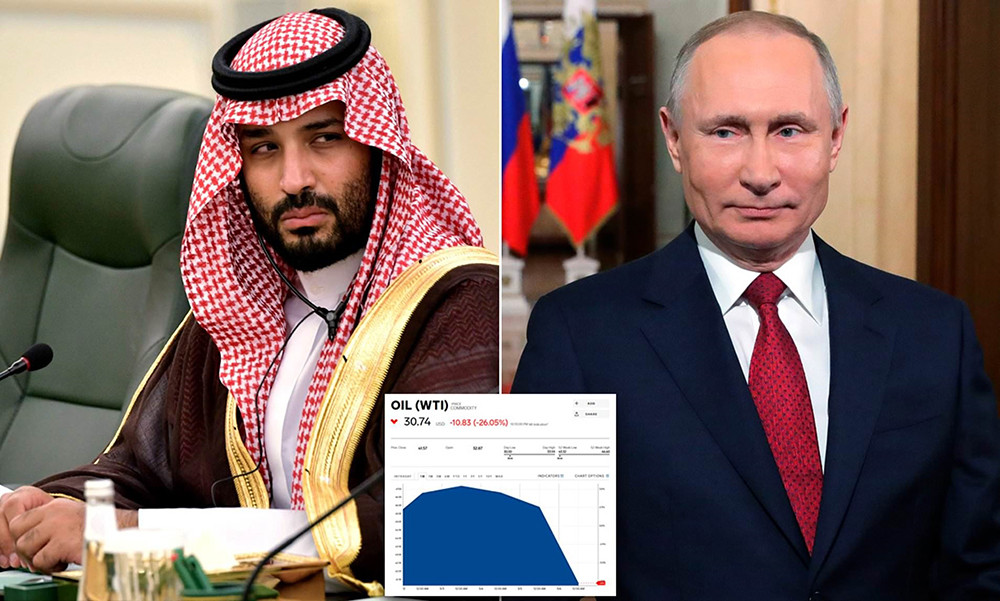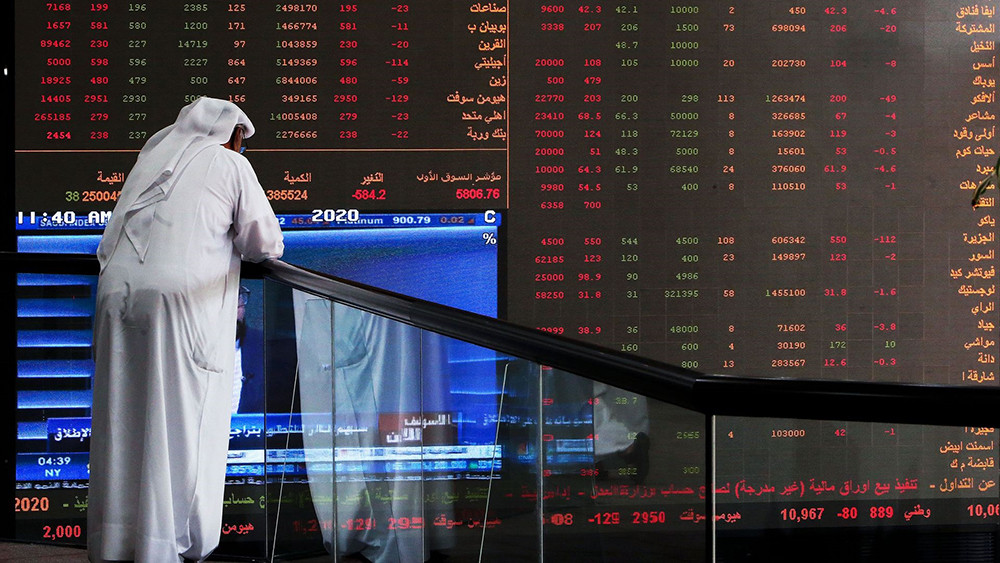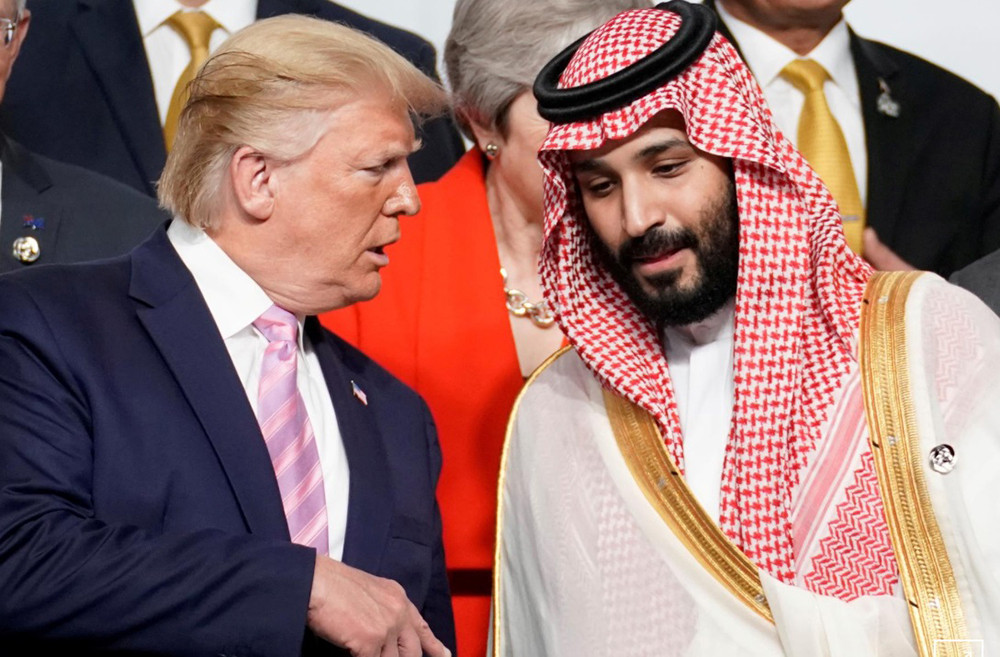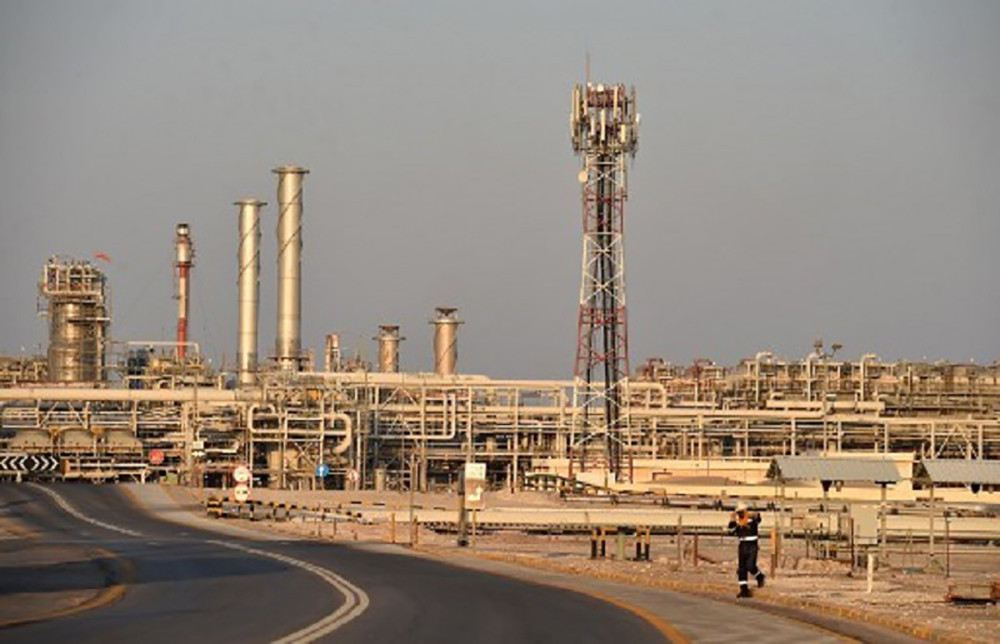Trump eager to negotiate oil prices as No. 1 position is threatened
(Baonghean) - In the context of the oil price war between Russia and Saudi Arabia that is still at a stalemate, US President Donald Trump has just announced that he could participate in negotiations with both countries to find a solution.
America "hit" by Russia
The latest proposal for negotiations on oil prices came after President Donald Trump had a private phone call with Russian President Putin and Saudi Crown Prince Mohammed bin Salman earlier.
In fact, it is not until now that Mr. Trump is concerned about the oil price war between Russia and Saudi Arabia, but more broadly, between the Organization of the Petroleum Exporting Countries (OPEC) led by Saudi Arabia and non-OPEC countries led by Russia. And more than anyone, Mr. Trump also clearly understands Russia's goal when he firmly refused OPEC's proposal to cut oil production, in the context of continuous oil price declines in the first quarter of this year.
 |
| Russian President Vladimir Putin and Saudi Arabian Prince Mohammed bin Salman. Photo: Dailymail.co.uk |
Russian President Putin also did not hesitate to admit that the oil production cut had a precedent and only helped US shale oil producers increase their market share. The lesson of the past was there, when US oil production skyrocketed from nearly 6 million barrels/day in 2011 to a record high of nearly 18 million barrels/day in 2018, far surpassing Russia and Saudi Arabia. This was also a milestone marking the US becoming the world's number 1 oil exporting power. In that context, Russia's market share dropped sharply, forcing the country to find a solution to cope!
That is why, in early March, the oil price war was suddenly sparked when Saudi Arabia proposed to cut production in the context of declining global demand due to the Covid-19 pandemic. But in response, Russia refused. Initially, people saw increasing tensions between Russia and Saudi Arabia, thinking that Moscow was being punished by Riyadh, or that Riyadh wanted to assert its position and voice. However, later, people realized that the main target that Russia was aiming at was the United States.
According to observers, if all sides maintain current oil production levels, oil prices will continue to fall sharply, and a series of small-scale shale oil companies in the US, which are already heavily indebted, will face bankruptcy. Looking back at the end of 2015, the same thing happened when Saudi Arabia increased production, flooding the world market with cheap oil.
 |
| Investors anxiously watch stocks and oil prices fluctuate wildly. Photo: AFP, Getty |
It should be noted that since 2016, as the de facto leader of the 13 non-OPEC oil producers, Russia has played a key role in determining oil prices, a role similar to that of Saudi Arabia within OPEC. And so far, while the Trump administration has been extremely eager as the crisis and difficulties have piled up, both Russia and Saudi Arabia are confident that they can hold on and maintain low oil prices for a while longer.
US seeks to ally with Saudi Arabia
According to observers, in the face of increasing pressure, the only thing the US can do now is probably diplomacy, negotiation and bargaining. This is exactly what the Russian government is expecting.
More than anyone else, President Putin has been "angry" over the years because the US, which is not bound by any organization or cooperation mechanism; but has benefited greatly from this. Meanwhile, Russia has participated in cooperation with OPEC under the OPEC+ mechanism, and at the same time led a group of 13 non-OPEC countries such as Azerbaijan, Bahrain, Bolivia or Kazakhstan...
Therefore, some people think that this is a “big move” by Russia when it wants to “rebalance” the global oil market in a more equitable direction. Of course, the US will not be able to naturally “benefit” as before, and will not be able to continue to easily use energy as a tool for economic and political control on a global scale. This also means that in the negotiations – if any – between Russia, the US and Saudi Arabia, Russia can choose either to “politely” propose or “show its cards” to force the US to participate in the current oil cooperation mechanisms.
 |
| US President Donald Trump and Saudi Crown Prince Mohammed bin Salman talk at the G20 Summit in Osaka, Japan in June 2018. Photo: Reuters |
On the other hand, Russia can also take this opportunity to bargain with the US for some concessions related to the removal or reduction of sanctions against Russia in recent times. It is also worth mentioning that the 2019 production cut agreement between OPEC and non-OPEC oil producers led by Russia expired on March 31. At this time, negotiations are also necessary for the parties to calculate new agreements to effectively coordinate the oil market.
For its part, observers say the US is also considering joining forces with its ally Saudi Arabia to "fight" Russia in the oil market share battle. Government sources say US Secretary of State Mike Pompeo and Energy Secretary Dan Brouillette recently proposed the idea to National Security Advisor Robert O'Brien. But so far, no decision has been made.
However, according to analysts, to get Saudi Arabia's nod, Washington may have to negotiate and reach an agreement with Riyadh on a series of issues such as supporting oil prices through the use of national reserves, stimulating the economy or providing compensation after moves that impact the oil market...
Of course, the US still has the advantage of being the leading arms supplier to Saudi Arabia and having a good personal relationship between the two leaders. Although, Mr. Trump has recently encountered tough views from US Congress members in having to put strong pressure on the Middle East ally Saudi Arabia.
At this point, perhaps all sides have prepared their “trump cards”, waiting for the opportunity to use them to gain an advantage over their opponents in the fierce oil price war as well as the oil market share. More broadly, it will be a large-scale revolution that can completely change the balance of world oil power. However, this war will continue to depend on many factors, among which, the Covid-19 pandemic is showing itself to be an unpredictable “variable” for all sides!
 |
| Abqaiq oil refinery of Aramco energy group in Saudi Arabia. Photo: AFP |



